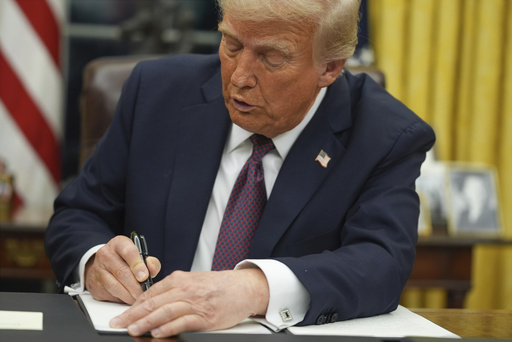
A federal judge in Boston made a significant decision on Thursday, temporarily halting an executive order from President Donald Trump that aimed to eliminate birthright citizenship for children of undocumented immigrants. This marks the fourth ruling against the executive order since similar decisions were made by judges in New Hampshire, Seattle, and Maryland.
U.S. District Judge Leo Sorokin articulated in his 31-page ruling that the Constitution guarantees birthright citizenship broadly, covering the individuals mentioned in the executive order. The legal challenge in Boston was initiated by the attorneys general from 18 states and is part of at least ten lawsuits that are disputing the order on various grounds.
In a stated response, the coalition of attorneys general remarked, “President Trump may believe that he is above the law, but today’s preliminary injunction sends a clear message: He is not a king, and he cannot rewrite the Constitution with the stroke of a pen.”
In the Seattle case, U.S. District Judge John C. Coughenour criticized the Trump administration for attempting to change interpretations of the Constitution through executive action. Moreover, a nationwide pause on the executive order was also issued by a federal judge in Maryland, which affected groups advocating for immigrant rights and pregnant women whose unborn children could be impacted by the directive. The administration announced its intention to appeal that ruling to the 4th Circuit Court of Appeals.
During the proceedings in Boston, the attorneys general, along with representatives from San Francisco and Washington, D.C., sought a preliminary injunction, which will likely stay in effect while the legal battle unfolds. They contend that the concept of birthright citizenship is firmly embedded in the Constitution, arguing that Trump overstepped his authority in issuing the order, which they described as an unlawful maneuver aimed at removing citizenship from hundreds of thousands of American-born children merely due to their parentage.
The states further emphasize that the executive action could lead to significant financial repercussions, diminishing the funding necessary for essential services such as foster care, healthcare for low-income families, and early intervention programs for children with disabilities.
Additionally, a new lawsuit was filed on Thursday in the Southern District of New York by the New York Immigration Coalition, along with a 31-year-old Venezuelan woman who is pregnant and seeking asylum. This case asserts that the proposed ban discriminates based on national origin and immigration status, potentially leaving the woman’s child stateless and without a recognized nationality.
These legal challenges fundamentally hinge on the interpretation of the 14th Amendment to the Constitution, which was ratified in 1868 in the aftermath of the Civil War. This amendment addresses citizenship rights and has historical significance following the Dred Scott decision, which determined that an enslaved man was not considered a citizen, despite residing where slavery was prohibited.
The Trump administration has contended that children of noncitizens do not qualify as “subject to the jurisdiction” of the U.S., thereby being ineligible for birthright citizenship. However, the state attorneys firmly argue that these children are indeed subject to U.S. laws and that this has been recognized since the amendment was adopted, especially illustrated in the 1898 Supreme Court case, United States v. Wong Kim Ark. This case established that the only exceptions to automatic citizenship at birth are children of diplomats, enemy combatants in U.S. territory, those born on foreign vessels, and members of sovereign Native American tribes.
Birthright citizenship is a principle that applies in around 30 countries globally, with most located in the Americas, including Canada and Mexico. Judge Sorokin’s ruling also pertains to another related case in Boston, where Lawyers for Civil Rights represent expectant mothers affected by the presidential order.

